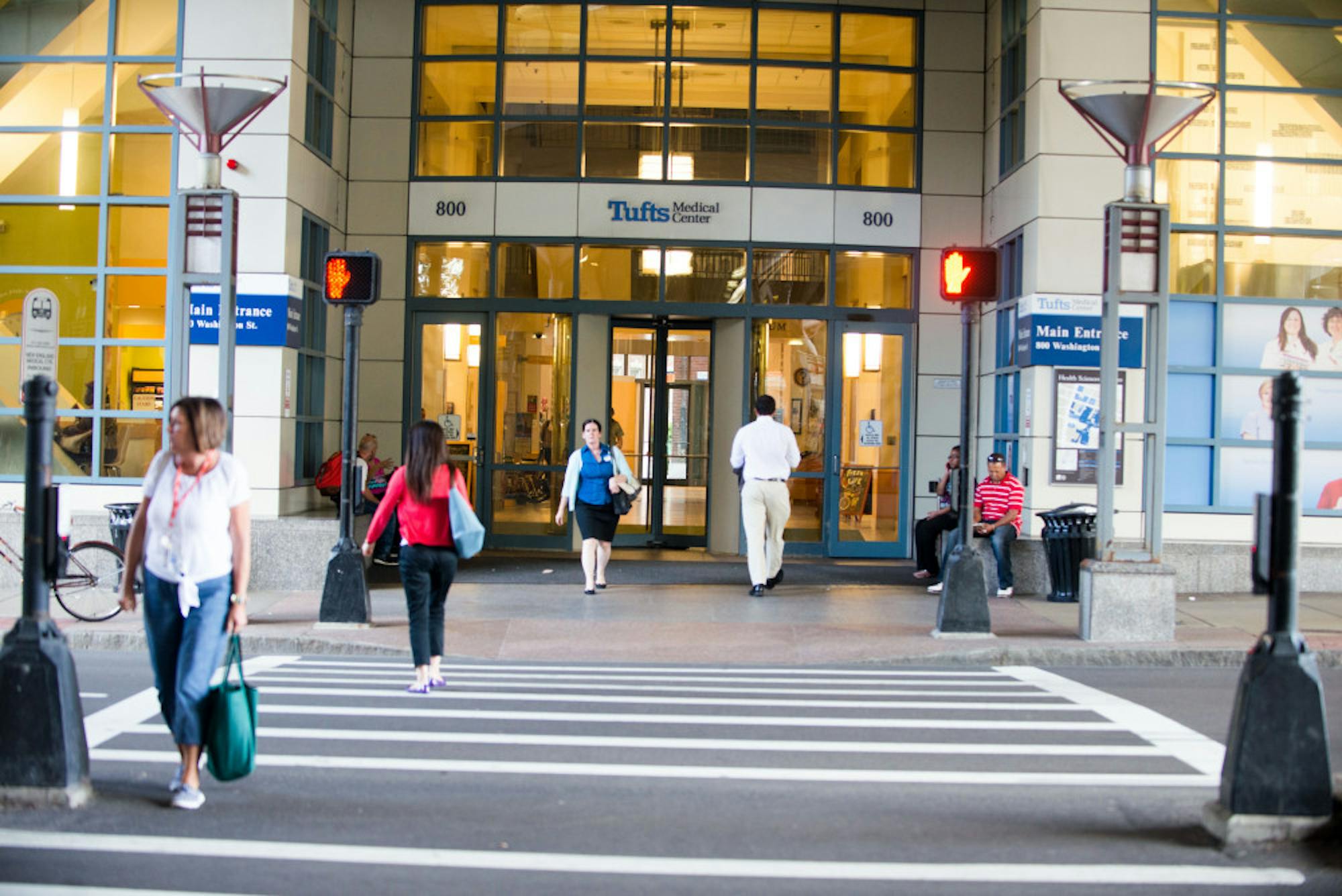Fourth-year students at the Tufts University School of Medicine placed into their residencies on this year’s “Match Day,” marking the second year in a row that students learned about their matches online amid the COVID-19 pandemic.
A total of 194 students matched into residencies in 24 specialties across 29 states on March 19. Amy Kuhlik, dean for student affairs at TUSM, explained the matching process.
“Students apply to residency programs in the late summer or early fall of their fourth year,” Kuhlik wrote in an email to the Daily.
After conducting interviews throughout the fall and early winter, students rank the residency programs in order of preference. These lists are typically submitted in late February, but students had until early March to do so this year.
“Programs also submit a list of candidates in rank order at the same time,” Kuhlik said. “The [National Resident Matching Program] then runs a unique match algorithm…which results in a final ‘match’ that must be accepted by both students and programs. The Match results are announced for all programs/students on the same day in late March.”
Becca Bell, a fourth-year medical student who recently matched at Dartmouth-Hitchcock Medical Center for otolaryngology, explained how TUSM’s Maine Track program guided her career choices. As part of the Maine program, Bell did her third and fourth years of medical school at Maine Medical Center.
“I really liked the idea that the school really emphasized long-term relationships with patients in that more rural setting,” Bell said.
The Maine Track provides students interested in careers in rural medicine the opportunity to get hands-on experience working in clinical sites throughout Maine and learn a community-based curriculum.
Bell chose otolaryngology-head and neck surgery because it allows her to work as a surgeon while also developing long-term relationships with patients.
“I spent my third year working in a smaller hospital in a more rural town in Maine," Bell said. "I found that I really loved working in the [operating room] for the team environment, but I really wanted a surgical specialty where I could have long-term relationships with patients."
At Dartmouth, Bell will be the only otolaryngology resident in her class. She explained that she chose the program because of the amount of one-on-one attention and mentoring she’ll receive, as well as the continued emphasis on rural medicine.
Kareem Hisham El-Tayeb, a fourth-year medical student, matched at Brigham and Women’s Hospital, specializing in anesthesiology. He said that the program was his top choice.
“I always thought cardiology, renal and all those physiology-heavy subjects are really fascinating,” El-Tayeb said. “[With] anesthesia, you become the master of all those things, in the OR at least.”
El-Tayeb credited his classmates with helping make his medical school experience enjoyable.
“My classmates really made my experience,” El-Tayeb said. “Everyone’s just good to the core, it was really heartwarming.”
Of the 194 TUSM students that matched, 42.2% are staying in New England, 10.4% will be doing their residencies in California and two of the students will be starting their residencies in the military.
According to Kuhlik, the numbers and results of the matching process did not differ due to the pandemic. One aspect that was affected by the pandemic, however, was students’ ability to become familiar with the programs they were considering.
“This year, visiting rotations were banned across the country so students participated in ‘virtual’ away rotations where they Zoomed into rounds and conferences to get a feel for various programs,” Kuhlik said. “That meant that students had to rank programs that they were unable to visit, sometimes in cities or regions of the country that they had never seen.”
Bell added that as the entire matching process, including interviews, was conducted remotely, she was not able to see Dartmouth.
“I never actually got to go inside the hospital at Dartmouth," Bell said. "[The pandemic] definitely changed the way that you get to meet people and explore the programs, but I really feel very lucky that it worked out as well as it did."
Kuhlik explained how TUSM helped students navigate the process amid the changes.
“To help our students prepare for a more challenging interview environment, our Asst. Dean for Students, Jess Shah, did mock interviews (helping students with their ‘web manners’) and we recruited MD alumni to do mock interviews with any student who wanted more practice,” she said.
El-Tayeb said that the deans of the medical school helped him navigate through his doctoral education.
“You get a lot of support from the deans,” El-Tayeb said. “They were so approachable … and for me, that was really meaningful.”
Bell and El-Tayeb are looking forward to the next chapter in their medical careers.
“I am really looking forward to exploring the upper valley,” Bell said. “The group at Dartmouth in the otolaryngology department just seems really kind and supportive, and they all seem really brilliant as well, so I'm really excited to learn from them and work with them.”






